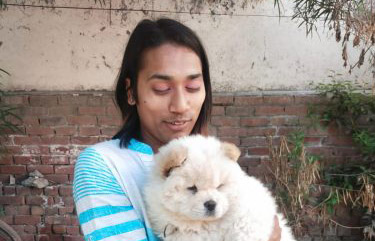It started off as a usual day with Mishti going to school. They were living in the city Ayodhya in Uttar Pradesh, India. She was five. Her father who was as a ground worker came home drunk that night. It was one of the many nights where tensions ran high in their family. His mother was exasperated by his addiction. Normally it would lead to an argument but this time she had made her mind to throw him out of the house.
Mishti left her family home along with her family in 2012 and came to Patiala. They arrived at the famous Goddess Kali Temple and lived there for a few days until they met this man, a regular devotee. He offered a room to rent and helped with their survival. It was a new beginning. They came to Mathura Colony, Patiala. Mishti was happy with change and so were her parents. Now she could at least play in peace.
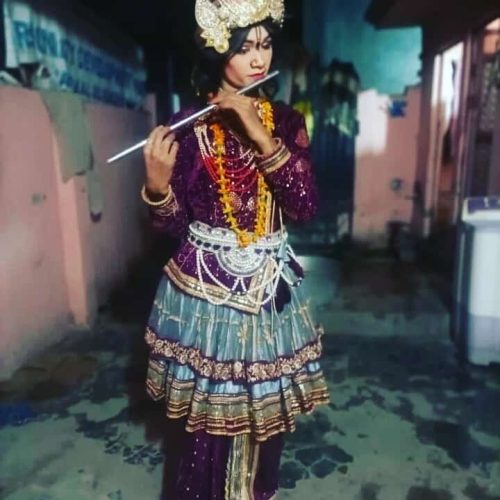
All she wanted to do was put on some make up, dress up like a woman and dance her heart out. She loved to play the wife; she was always playing the girlfriend. When Mishti turned 7, a new family moved to the house next door. This is when Mishti found someone just like her who was born as a boy but always identified as a girl, Amar. Soon they were inseparable. They played together and often told their parents they wanted a husband. Their parents laughed at their ideas and settings. They told Amar and Mishti that they can’t get a husband as they were boys and would only get wives. But both of them never accepted.
The transgender population in India is diverse with numerous gender identities and unique cultural lifestyle. According to a Times of India report, India’s last census conducted in 2011 yielded the first official count of transgender people, at more than 490,000. The country’s transgender activists claim that this number vastly underestimates the actual population, which they approximate to be six to seven times higher. Census results say that 55,000 came from parents identifying their children as transgender, legally recognised by the Supreme Court in India as the third gender, traditionally called “hijra.”
Years passed but Amar and Mishti continued to play the women. Their childhood was nearing its end, but their identity was still the same. They wore make up, wearing their mothers’ clothes and still danced to the same music. This soon became a concern for the parents. They tried to separate them and often beat them up for being the way they were. No more play allowed.
But they were not ready to stop. It was only a new start. Mishti confronted her parents about the way she felt about her body. She was only born as a boy but never felt like one. She says there is nothing apart from giving birth to a child that she could not do. She can cook, dance, love and nurture. She won’t accept the cast off. After repetitive beating and violence Mishti was told to leave the house at 16. Her parents could not allow her falling in love with men.
A 2018 study published by the National Human Rights Commission of India (NHRCI) suggests that only an average 20% of North Indian transpeople surveyed maintain any form of relationship with their families, with most experiencing sub-par treatment compared to other family members. Mishti sadly falls into the category of most transgender people who’ve reported facing verbal and corporeal abuse at the hands of their parents, siblings and other family members.
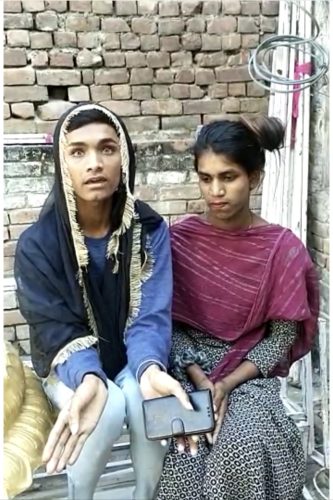
While Mishti was being disowned, love had entered Amar’s life. She fell for a boy called Mari who worked at a grocery shop. He was her first. She wanted to marry him. But Mari couldn’t marry her as he saw her as a boy who merely played the part of a girl.
Soon after Mishti left home, Amar was denied the right to live as a woman. She left her house in fury. She soon joined Mishti in the public park of Mathura colony. They lived there for about three weeks. Both friends had found work in the local shops. Independence felt rewarding until society knocked on their doors. People soon began to question their attire, the way they walked, how they spoke. One night while returning from work, Mishti and Amar were stopped by some drunk men. They mocked them for dressing up as women, asked them to dance for them. Both tried to escape but they were brutally beaten until left to bleed. They didn’t make it to the park that night.
The NHRCI report’s findings resonate with Amar and Mishti’s experience as 99% of transgender people have felt ostracised by society on more than one occasion, with 96% facing employment discrimination which have pushed most into taking up low paying and undignified work such as begging and sex work, where they frequently face abuse and violence.
Because the duo had faced several injuries, so they were soon fired from the job. Mishti says, she could play all gender prescribed roles, she has a beautiful heart and loves everyone around but why has this love been missing for her? How could she ever be a part of this celebration of Women’s Day when she has been denied the right to be one each day of her life. People call her names, tease her in the street, rob her in daylight and abuse her often. How is she part of the wider celebration going on about gender equality? Who is looking out for her? And what should she call the gaze which follows her around everywhere?
She had always dreamt of becoming a bar dancer. Now she realised her dream fade away along with others she had. The physical injuries are nothing in comparison to those of the heart. Sleeping on the park bench injured for almost a week now, they finally had a visitor. Miss Pooja.
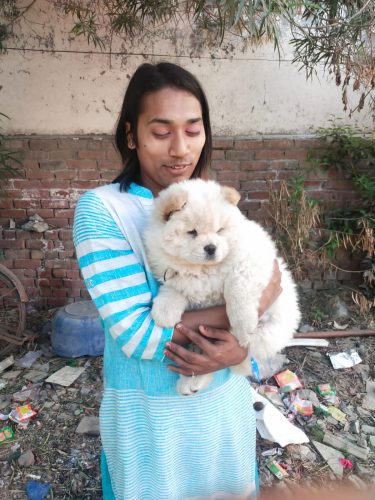
Pooja shares her fate with Amar and Mishti. After her parents passed away when she was 6, she was sent to a charitable school in Patiala. Abandoned by the society for a long time now because she identifies herself as a woman. She dresses and loves like one. She works at a tea stall at district courts, Patiala, Punjab. After a long struggle for a place to live she has been renting a small accommodation for the past three years now. The hardships of her life are all moved beyond when she sees a child. She wants to marry a man and adopt children. She believes she has abundance of love to give. The void left with her parents’ demise lingers to be filled. Maybe she can never be a part of this Women’s Day as she is not accepted as a woman at all. How can such a compromised existence be celebrated? How can she let herself be one with the people who have refuse her right to be? They tell her this day is not meant for her. She can never become a part of it. She questions people on their rejection of her as a woman. She asks why are they celebrating it without her? Where can she go and demand to be respected for who she chooses to be?
It had been a long since someone had been kind, so Pooja’s visit alarmed them. She sat down with them to find out what happened. After talking to them Pooja offered to speak to Mishti’s parents to perhaps make them understand how she feels about her identity. But this visit could not meet its intent as Mishti was beaten for bringing Pooja home and both of them were deeply insulted. Pooja could not bear to witness their suffering any longer and offered up her home to them.
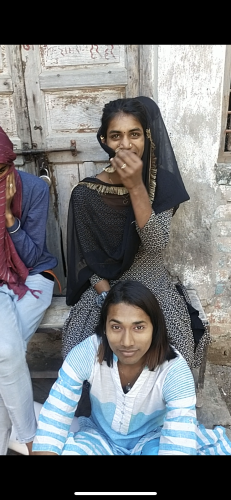
Three of them have been living together since 2019. Mishti is working as a caregiver now. She found love in a childhood friend called Karan who cannot marry because his family would never accept. They have been dating for two years now. Mishti wants to continue the relationship till it lasts. The inseparable duo of Amar and Mishti has seen some up downs since love knocked Amar’s door. Her boyfriend works with her and does not like her friendship with Mishti. He wants her to be friends with other women rather than those like her. Amar complies in love. Though Pooja hopes to be married one day but hasn’t found true love yet. She dreams of becoming a renowned singer, singing to let the world know how it feels to be shut down for being yourself. They feel this Women’s Day celebration will always be incomplete without them.





